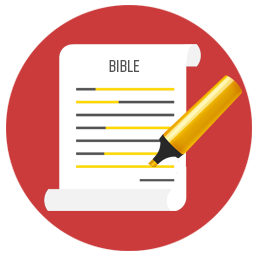This Bible study is based on Bible Readings for the Home, a topical study presented in a question-and-answer format. The scripture references come from both the KJV and NIV translations. Additionally, we’ve provided links to each verse from the World English Bible for a more modern interpretation. We encourage you to follow along in your own Bible, reflect on the guided questions, and highlight the verses that speak to you. Feel free to share this study with your friends and family. Enjoy the journey!
1 Now after the Sabbath, as it began to dawn on the first day of the week, Mary Magdalene and the other Mary came to see the tomb.
World English Bible
56 They returned, and prepared spices and ointments. On the Sabbath they rested according to the commandment.
World English Bible
10 but the seventh day is a Sabbath to Yahweh your God. You shall not do any work in it, you, nor your son, nor your daughter, your male servant, nor your female servant, nor your livestock, nor your stranger who is within your gates;
World English Bible
1 But on the first day of the week, at early dawn, they and some others came to the tomb, bringing the spices which they had prepared.
World English Bible
16 He came to Nazareth, where he had been brought up. He entered, as was his custom, into the synagogue on the Sabbath day, and stood up to read.
World English Bible
20
Pray that your flight will not be in the winter, nor on a Sabbath,
World English Bible
21 For Moses from generations of old has in every city those who preach him, being read in the synagogues every Sabbath.”
World English Bible
15 But the Lord said to him,
“Go your way, for he is my chosen vessel to bear my name before the nations and kings, and the children of Israel.
World English Bible
21 “He said to me,
‘Depart, for I will send you out far from here to the Gentiles.’”
World English Bible
5 through whom we received grace and apostleship, for obedience of faith among all the nations, for his name’s sake;
World English Bible
14 But they, passing on from Perga, came to Antioch of Pisidia. They went into the synagogue on the Sabbath day, and sat down.
World English Bible
42 So when the Jews went out of the synagogue, the Gentiles begged that these words might be preached to them the next Sabbath.
World English Bible
44 The next Sabbath, almost the whole city was gathered together to hear the word of God.
World English Bible
13 On the Sabbath day we went outside of the city by a riverside, where we supposed there was a place of prayer, and we sat down, and spoke to the women who had come together.
World English Bible
12 and from there to Philippi, which is a city of Macedonia, the foremost of the district, a Roman colony. We were staying some days in this city.
World English Bible
1 Now when they had passed through Amphipolis and Apollonia, they came to Thessalonica, where there was a Jewish synagogue.
2 Paul, as was his custom, went in to them, and for three Sabbath days reasoned with them from the Scriptures,
World English Bible
1 After these things Paul departed from Athens, and came to Corinth.
2 He found a certain Jew named Aquila, a man of Pontus by race, who had recently come from Italy, with his wife Priscilla, because Claudius had commanded all the Jews to depart from Rome. He came to them,
3 and because he practiced the same trade, he lived with them and worked, for by trade they were tent makers.
World English Bible
4 He reasoned in the synagogue every Sabbath, and persuaded Jews and Greeks.
World English Bible
11 He lived there a year and six months, teaching the word of God among them.
World English Bible
10 I was in the Spirit on the Lord’s day, and I heard behind me a loud voice, like a trumpet
World English Bible
28
Therefore the Son of Man is lord even of the Sabbath.”
World English Bible
13 “If you turn away your foot from the Sabbath,
from doing your pleasure on my holy day;
and call the Sabbath a delight,
and the holy of Yahweh honorable;
and shall honor it,
not doing your own ways,
nor finding your own pleasure,
nor speaking your own words:
World English Bible
11 for in six days Yahweh made heaven and earth, the sea, and all that is in them, and rested the seventh day; therefore Yahweh blessed the Sabbath day, and made it holy.
World English Bible
1 God, having in the past spoken to the fathers through the prophets at many times and in various ways,
2 has at the end of these days spoken to us by his Son, whom he appointed heir of all things, through whom also he made the worlds.
World English Bible
